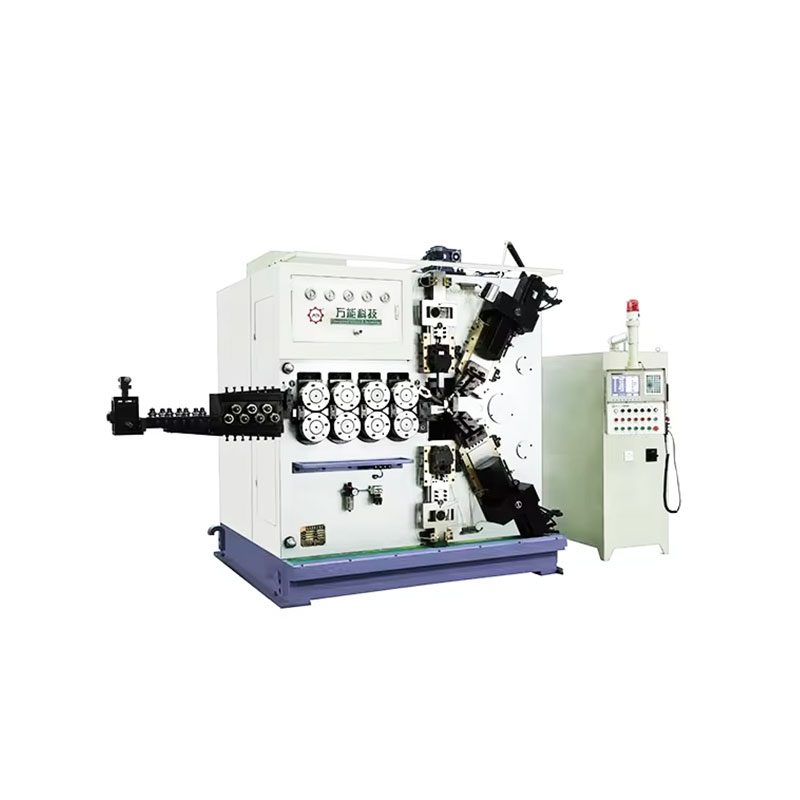The integration of CNC (Computer Numerical Control) technology has significantly enhanced the precision and efficiency of spring coiling machines in several key ways:
Precise Control of Parameters: CNC technology allows for the precise control of various coiling parameters, such as wire feed rate, mandrel speed, pitch, and coil diameter. This precision ensures that each spring is produced with consistent dimensions and tension, reducing variability and improving overall product quality.
Automated Adjustments: CNC systems can automatically adjust coiling parameters in real-time based on feedback from sensors. This capability allows the machine to correct any deviations instantly, maintaining uniformity and reducing the risk of defects.
Complex Spring Designs: CNC technology enables the production of complex spring designs with intricate geometries that would be challenging or impossible to achieve with manual or less sophisticated machines. This flexibility allows manufacturers to meet diverse application requirements across industries.
Increased Production Speed: By automating the coiling process and reducing the need for manual intervention, CNC-controlled machines can operate at higher speeds while maintaining precision. This increase in speed boosts production efficiency and throughput, making it possible to produce more springs in less time.

Enhanced Repeatability: With CNC programming, once a specific spring design is set, the machine can replicate the same design with high accuracy across large production runs. This repeatability is crucial for industries where consistency is paramount, such as automotive or aerospace manufacturing.
Reduced Material Waste: The precision offered by CNC technology helps minimize material waste by ensuring that the wire is used efficiently. Accurate control of the wire feed and coiling process reduces the likelihood of errors that could lead to scrap or rework.
Improved Setup Times: CNC machines can store and recall programs for different spring designs, significantly reducing setup times when switching between products. This capability enhances the flexibility of production lines, allowing for quicker changeovers and reducing downtime.
Data Logging and Quality Control: CNC systems often include data logging features that track production metrics, enabling better quality control and process optimization. Manufacturers can analyze this data to identify trends, troubleshoot issues, and continually improve the coiling process.
Overall, CNC technology has transformed spring coiling machines by enhancing their precision, efficiency, and versatility, enabling manufacturers to meet the increasingly stringent demands of modern industries.

 English
English русский
русский Deutsch
Deutsch Español
Español 中文
中文










